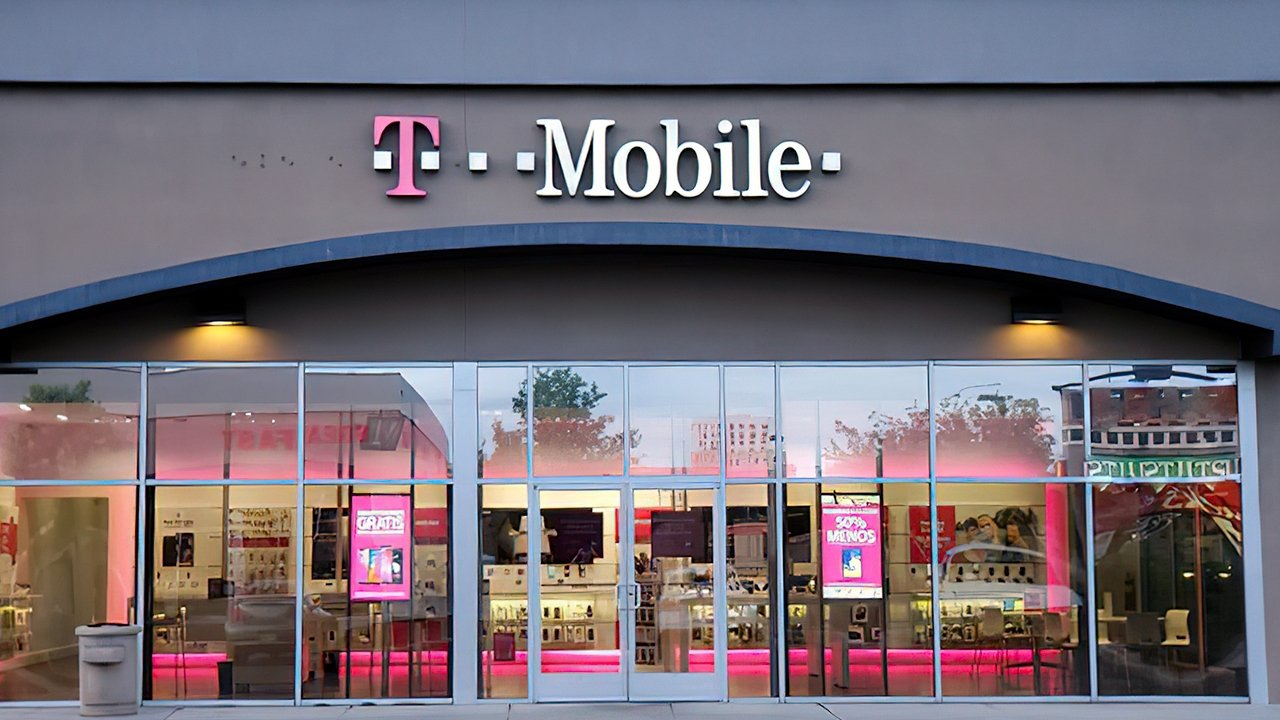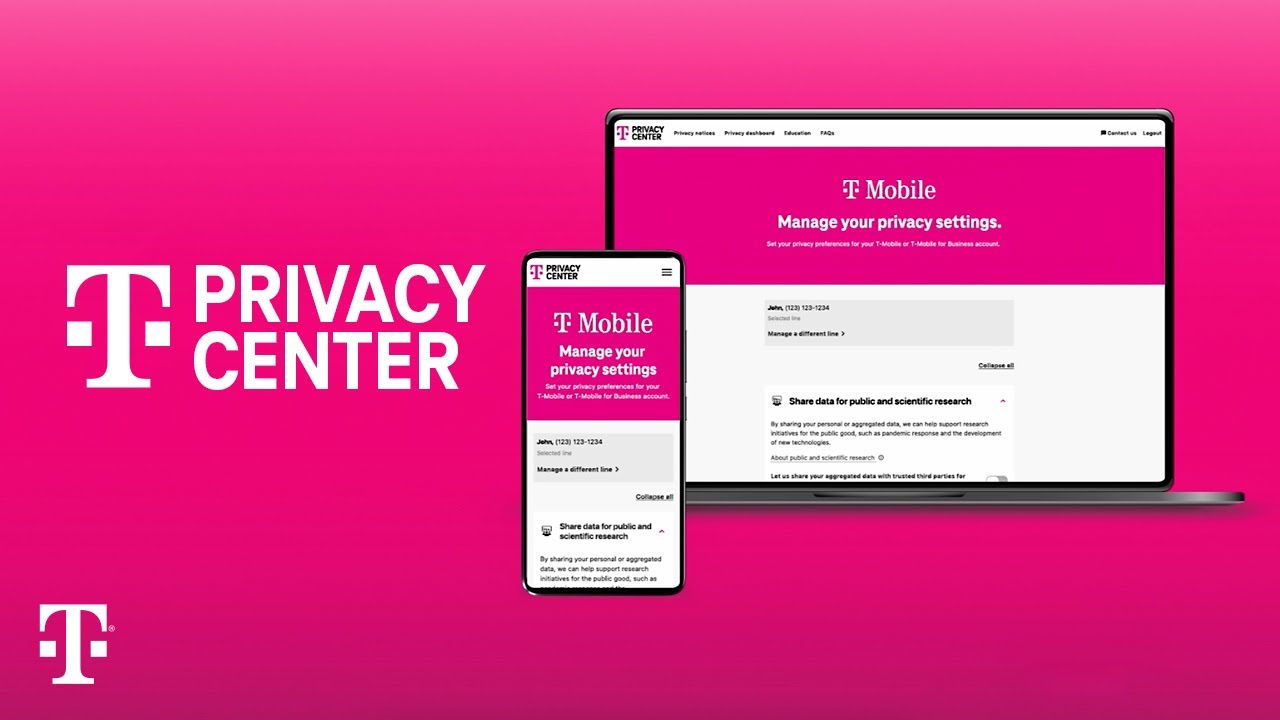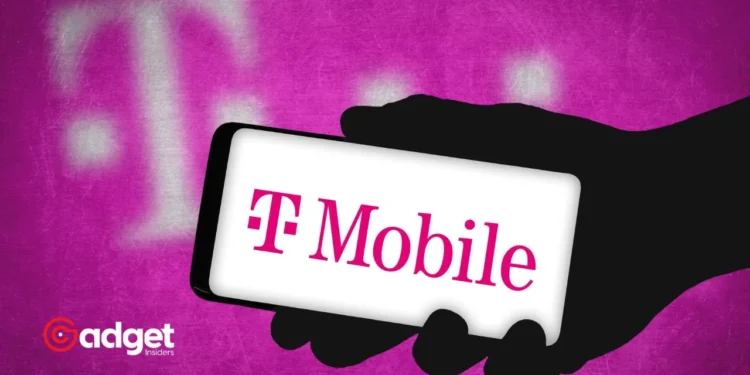In an era where digital privacy concerns are at the forefront of consumers’ minds, T-Mobile has introduced a new privacy policy that has sparked a flurry of discussions and concerns. With the advent of “Profiling and automated decisions” in their Privacy Center, T-Mobile is treading on thin ice, pushing the boundaries of user privacy and data usage.
This move, discovered by a vigilant Reddit user and reported by The Mobile Report, signals a significant shift in how customer data could be utilized, raising eyebrows and concerns alike.

T-Mobile: The New Frontier of Data Utilization
T-Mobile’s recent update to their privacy settings isn’t just another policy change; it’s a testament to the evolving landscape of data privacy and the increasingly predictive nature of customer service.
By opting users into profiling and automated decisions by default, T-Mobile has embraced a future where data isn’t just a record of past behaviors but a blueprint for future interactions.
This bold move, aimed at enhancing customer experience, could be seen as a double-edged sword, offering both innovative service improvements and a potential privacy nightmare.
Learn it. T-Mobile users have "another reason to switch" after new privacy nightmare https://t.co/NDtv2iB6Z9 #tech #digital #data #privacy
— Kohei Kurihara – Privacy for all together 🌍 (@kuriharan) April 7, 2024
Predictive Models and AI at the Heart of Controversy
At the heart of this controversy are T-Mobile’s new predictive models, designed to harness customer data for forecasting future behavior. This includes predicting customer inquiries in customer support interactions and even the reasons for visiting physical store locations.
Such applications of artificial intelligence (AI) highlight a significant investment in technology aimed at personalizing customer interactions. However, the enthusiasm for innovation is matched by customer concerns over the implications of such profiling.

Customer Backlash and Calls for Transparency
The introduction of this new category of data usage has not gone unnoticed by T-Mobile’s customer base. Voices from the community, like the Reddit user gruesomeryoupons81, express a growing disillusionment with the carrier’s approach to privacy.
The sentiment reflects a broader skepticism towards corporations and their handling of personal data, echoing a demand for more transparent and customer-centric privacy practices.
Navigating the Privacy Maze: A User’s Guide
For T-Mobile customers concerned about their privacy, the path to opting out of these settings is straightforward but requires proactive engagement.
Users must navigate through their account settings to the Privacy Dashboard, where they can disable the “Profiling and automated decisions” option. This process underscores the importance of staying informed and active in managing one’s digital footprint.
The Balancing Act: Innovation vs. Privacy
T-Mobile’s latest policy update opens up a broader conversation about the balance between technological innovation and user privacy.
While AI and predictive modeling offer exciting possibilities for personalized services, they also pose significant privacy concerns. The tech industry, led by companies like T-Mobile, is at a crossroads, facing the challenge of innovating responsibly while respecting and protecting user privacy.

Looking Ahead: The Future of Privacy and Technology
As we move forward, the dialogue between technology providers and their users will undoubtedly continue to evolve. The key to navigating this complex landscape lies in finding a middle ground that respects user privacy while leveraging technology for meaningful improvements in service and user experience.
T-Mobile’s recent policy update may be a harbinger of future trends in the industry, making it a critical moment for consumers and companies alike to reflect on the values that will guide the future of digital privacy.
T-Mobile’s introduction of profiling and automated decisions marks a significant moment in the ongoing debate over privacy and data utilization. As the conversation unfolds, it will be essential for companies and consumers to engage in open and constructive dialogue about the future of privacy in the digital age.
Only through collaboration and mutual respect can we hope to navigate the challenges and opportunities that lie ahead.










